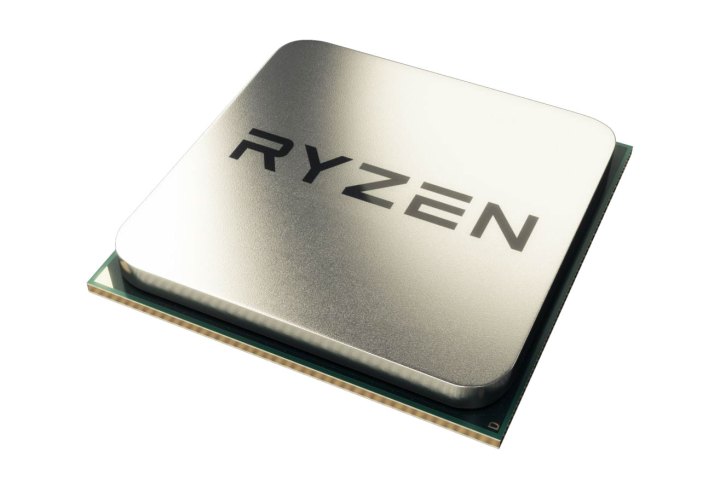
Ryzen represents a more aggressive improvement over AMD’s previous architecture, Excavator, with the new Zen chips offering a full 40 percent improvement. That’s much more significant than Intel’s more conservative improvements with its latest generation of CPUs, which focused on smaller performance increases and better mobile battery life. This is an important accomplishment for AMD, because apparently, it’s going to have to last for at least four years, as PCWorld reports.
The news came during CES 2017, where AMD’s computing and graphics senior vice president and general manager Jim Anderson discussed the new architecture. As he put it, comparing AMD’s process to Intel’s “tick-tock” development cycle that was actually skipped this time around, “We’re not going tick-tock. Zen is going to be tock, tock, tock.”
While Intel’s methodology usually results in a brand new architecture every two years, AMD has averaged closer to three to four years. It’s Opteron and Athlon architectures lasted from 2003 until 2007, and its K10 lasted from 2007 until 2010. The bottom line is that AMD simply must introduce impressive new performance metrics each cycle because its new architectures must remain competitive for far longer.
With Zen and Ryzen, AMD has taken the tactic of improving not only clock speeds but also making the chips better at guessing at what data will be processed next, called “branch prediction,” as well as build in the ability for chips to process more information at a time. That means AMD is focusing on going beyond Moore’s Law, which has predicted increased processor performance in PCs for decades, into “Moore’s Law Plus” that focuses on more than just manufacturing processes.
Judging by CES 2017, AMD’s efforts are paying dividends. A number of leading motherboard makers announced Ryzen-based components, with a total of 16 AM4-based solutions that are primed to plug in new Ryzen desktop processors. Not only AMD’s newest CPUs are supported in this year’s round of components, but also other high-end PC parts such as PCIe 3.0, M.2 SATA devices, USB Type-C ports with Thunderbolt 3, and more.
| ASRock | Asus | Biostar | Gigabyte | MSI |
| X370 Taichi | B350M-C | X370GT7 | GA-AX370-Gaming K5 | A320M Pro-VD |
| X370 Gaming K4 | X350GT5 | GA-AX370-Gaming 5 | X370 Xpower Gaming Titanium | |
| AB350 Gaming K4 | X350GT3 | AB350-Gaming 3 | B350 Tomahawk | |
| A320M Pro4 | A320M-HD3 | B350M Mortar |
Clearly, AMD is not messing around in making Ryzen a real product. As Anderson put it, “We’re not going to do a paper launch [where products are announced long before they actually ship]. We’ve done that before. We’re not going to mess with it.” That means that AMD and its customers will be able to squeeze every bit of life out of the Zen architecture for its entire four-year lifespan.
Competition is a good thing, and so AMD’s efforts are welcome in pushing PC’s forward. Intel isn’t standing still itself, of course, with its own upcoming advancements such as the 10mm manufacturing process coming with its own next generation of CPUs. But AMD is apparently confident that it’s positioned itself well to remain relevant in PCs well into the next decade.


